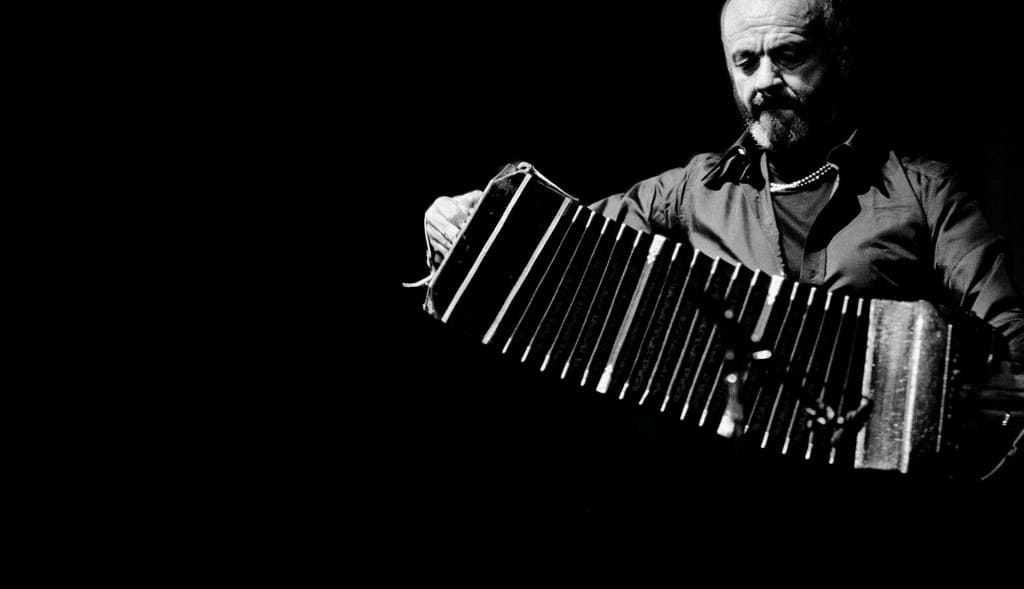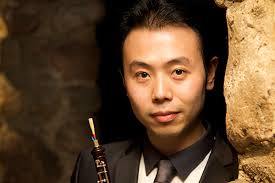Tango was born 100 years ago
mainThe great tango composer Astor Piazzolla was born in Mar del Plata, Argentina, on March 11 1921, the only child of Italian immigrants.


The great tango composer Astor Piazzolla was born in Mar del Plata, Argentina, on March 11 1921, the only child of Italian immigrants.

The Mozart concerto due to be played three…

The tenor Ian Bostridge shocked Symphony Hall Birmingham…

The orchestra’s president Gary Ginstling has engaged Katya…

The Manhattan School of Music this morning quietly…

Session expired
Please log in again. The login page will open in a new tab. After logging in you can close it and return to this page.
Piazzola was a great composer of Tangos, but he did not invent the Tango. The music and its tradition was “born” long before he was.
You mean Piazzolla, who stole the tango and repeated the same boring material endlessly (for classical musicians to feel funky), a hundred years ago.
He didn’t invent tango but saved it from decay with his innovative ‘vaccin’ doses of classical inspirations, jazz inclusions, daring harmonies. He was admired and encouraged by ‘mighty’ Nadia Boulanger !
Thank you for this comment, Yawn.
Piazzolla may have been a wonderful performer, but his compositions were, as you say, truly boring and repetitive.
“boring material”…
He was a great bandoneon player and arranger but is hugely overrated as a composer. Troilo, Salgán, Pugliese to name just a few contributed much more to Tango than Piazzolla ever did.
Pop music.
The tango was born of the rabble in the slums and brothels of Buenos Aires. It then traveled to Paris, becoming more sophisticated and formal. It was only then that Argentine high society fully accepted and embraced it. To this very date there has been no finest exponent of the genre than Carlos Gardel who tragically perished far too young in a plane crash.
One can appreciate all the tango composers without denigrating any one of them. But to deny the complexity and originality of Piazzolla is nothing but philistinism. His works are among the most sophisticated and complex of all tango composers. Pity that some people arent capable of recognizing this.
Well, include me among your philistines, Lorna.
Piazzolla’s “tango” compositions are just like those classical “rock” arrangements: a watering down of the original, with no bite, no sweat, and no soul left in them.
It’s a pity you aren’t capable of recognizing this.
Of course he did not create tango, but he certainly deserves a lot of credit for reinventing and modernizing it in the second half of the last century, as well as for increasing its emotional intensity and expressive range, thus making it even more universally beloved than it ever was before. The fact that such outstanding and very different classical musicians as (among many others) Gidon Kremer and Yo-Yo Ma both have been enjoying performing his music for several decades is enough proof for me of its fine quality.
“Rudy (Valentino) said you have to have real Spanish tiles to dance the tango/” — Norma Desmond/Gloria Swanson in “Sunset Boulevard, while the orchestra played “La Cumparsita”.
Saint-Saens’s “Rondo Capriccioso” sounds like a tango, the sliding theme after the Introduction.
Correction Tango was not born 100 years ago. Piazzolla once threw a score an audience member who asked him when he was going to play tango-the real stuff as opposed to his compositions.
Piazzolla set Jorge Luis Borges to music:
https://www.youtube.com/watch?v=DJdJ1ldJfIs&t=1237s
The last piece in this selection features “El hombre de la esquina rosada”, the most celebrated of Borges’ early stories. In 1965, Borges re-connected it to the tango in the course of his four talks on the subject. In the words of Fernán Silva Valdès, tango is a dagger blade in a sheath of silk. Borges concluded by reminding us that the tango places an imaginary past, fervent and tragic, within our reach.
May the ambiguity be with you.
I enjoy Piazzolla’s music but have heard enough of that descending chromatic bass.
Reading comments like : « Boring – Repetitive – Pop music – No bite – No sweat – No soul » ??
Can you explain why major internationally know musicians include Piazzolla works or encores in their programs ?
– Gidon Kremer, Argerich, Barenboim, Yuja Wang, Yo Yo, etc…
– Including Major orchestras, Chamber orchestras, String quartets, Jazz greats (Gary Burton, Chick Corea, Gerry Mulligan, etc…)
– How about the multitude of arrangements for most instruments, duets, trios and vocals ??
– AND let’s not forget the artistry and virtuosity of Piazzolla himself on the difficult Bandoneon instrument !!!
“Can you explain why major internationally know musicians include Piazzolla works or encores in their programs ?”
No I can’t, CYM, I honestly can’t, any more than I can explain the continuing popularity of Pachelbel’s Kanon in D. Some scheisse will always sell, I guess.
That comparison would have made any sense, GB, if you could name a few of the most outstanding classical musicians of last several decades who have performed that Pachelbel’s “masterpiece” in their recitals. There are hardly any such instrumentalists, unlike those many, some of whom named by CYM, who have played Piazzolla.
The Canon and Gigue in D is not Pachelbel’s masterpiece (he wrote a lot of other excellent and weightier stuff), but the canon is delightful when played in an appropriate style (e.g. Jordi Savall & Hesperion XXI, The Voices of Music, Neville Marriner & ASMG, Reinhard Goebel & Musica Antiqua Köln), and I don’t see how anybody could possibly call it by the word GB used. It is ideal with 3 violins plus continuo instruments, but of course it has been arranged for many other combinations, sometimes well, sometimes horribly. (And I agree with CYM on the equally deserved popularity of Piazzolla’s music .)
Poster Krenek above makes a case for Piazzola and Jorge Luis Borges.
Jose Cura does service for Pablo Neruda in his “Anhelo” CD that includes a techno-duet with Carlos Gardel. The stand-out track iis excellent Eduardo Delgado’s solo track of Piazzola’s “Adios Nonino” in a knokcd-out piano concert arrangement by a Brazilian pianist whose name I’ll think of tomorrow while shaving.
You can see “Neruda” dance a tango right out of the house onto a terazzo in “Il Postino”.